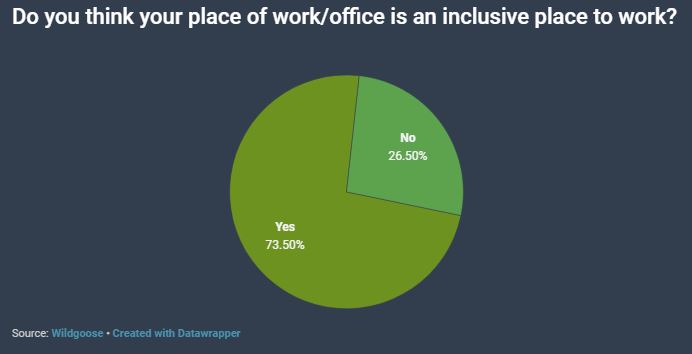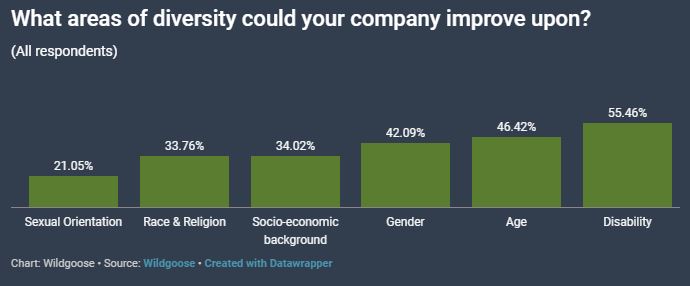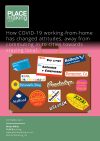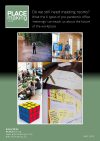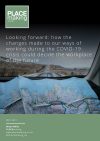Over 50% of UK employees surveyed feel disability is a top priority in the workplace, Wildgoose survey finds
Disability in the workplace is a hot topic in the media today, with broadcasters such as BBC, ITV, Channel 4 and Sky, along with government ministers, committed to doubling the number of disabled people involved in television by 2020 to make the industry more inclusive. However, it is not just the broadcasters who need to implement a culture of change.
With 70% of discriminatory queries at The Equality Advisory Support Service (EASS) regarding disability, it is clear that employers are not doing enough to be inclusive to those with a disability. In addition, millennials are known to want to work for companies who are shown to be inclusive and have a diverse workforce as they understand the benefits.
According to the Office for National Statistics, the employment rate for those with disabilities was 50.7% from April – June 2018 (81.1% for people without disabilities) so if workplaces make changes so that they are more inclusive, the whole economy would benefit.
In addition, research by the Independent Living Strategy Group has recently found that charging for social care or effectively a ‘disability tax’ has increased substantially over the last two years – sometimes by half. With workplaces not catering for staff with disabilities, there are fewer jobs available for the disabled, resulting in financial hardship. The Office for National Statistics found people with disabilities have unemployment rate of 8.7% (the unemployment rate for people without disabilities is 3.4%)
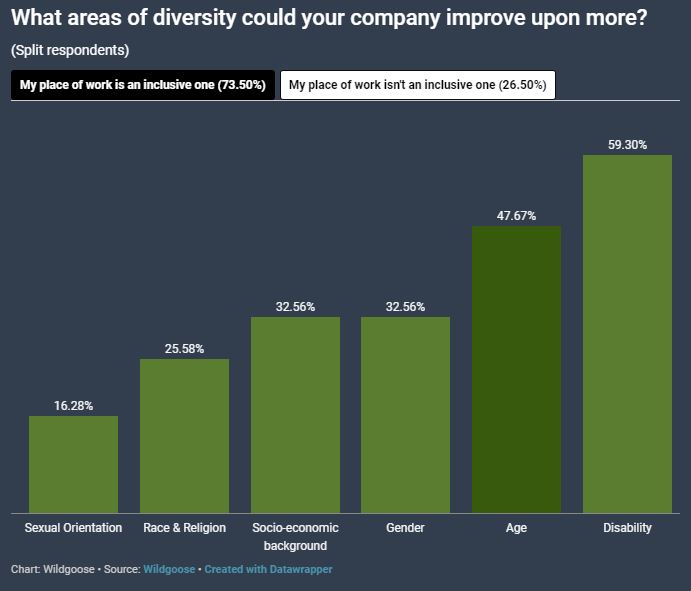 The Wildgoose survey also found that ‘age’ was the second biggest area of concern regarding inclusion in the workplace at 46.42% – potentially leading to dual discrimination for the older generation of disabled people.
The Wildgoose survey also found that ‘age’ was the second biggest area of concern regarding inclusion in the workplace at 46.42% – potentially leading to dual discrimination for the older generation of disabled people.
The recommendations accepted by the BBC’s Executive Board include:
- Increasing disability in its workforce
- Gaining a better understanding of our workforce through asking supplementary questions in the staff census
- Including disabled employees in all development and leadership programmes
- Ensuring recruitment processes and trainee and apprenticeship schemes provide specific support for disabled applicants
- Introducing a centralised ‘BBC Passport’ to inform managers about the support each person needs
- Mandate disability awareness training for all team managers
All these recommendations could be made at any company – disability needs to be made a top priority.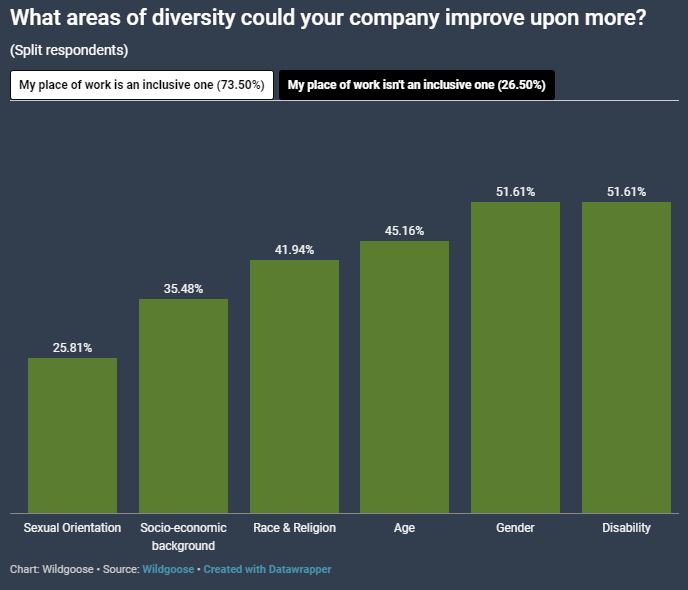
Upon the publication of the Wildgoose survey results, Michelle Hamilton at MENCAP said: “As a charity that works with people who have a learning disability, Watford Mencap are familiar with the findings of this survey. The UK is currently enjoying a low unemployment rate, but a disproportionate number of people with disabilities are unsuccessfully seeking work.
“Simple adaptations, robust induction and ongoing access to mentoring and training programmes can provide good pathways for people with disabilities to access the workplace and to become valuable team members.
“Businesses must welcome people with disabilities into their workforce to provide a more equal and inclusive employment landscape.”
To find out more about the survey, visit: https://wearewildgoose.com/uk/learning-and-development/diversity-and-inclusivity-in-the-workplace-survey/
Editor's Recommended Articles
-
Must Read >> Exploring the impact of an ageing workforce
-
Must Read >> UK hosts first ever Global Disability Summit



